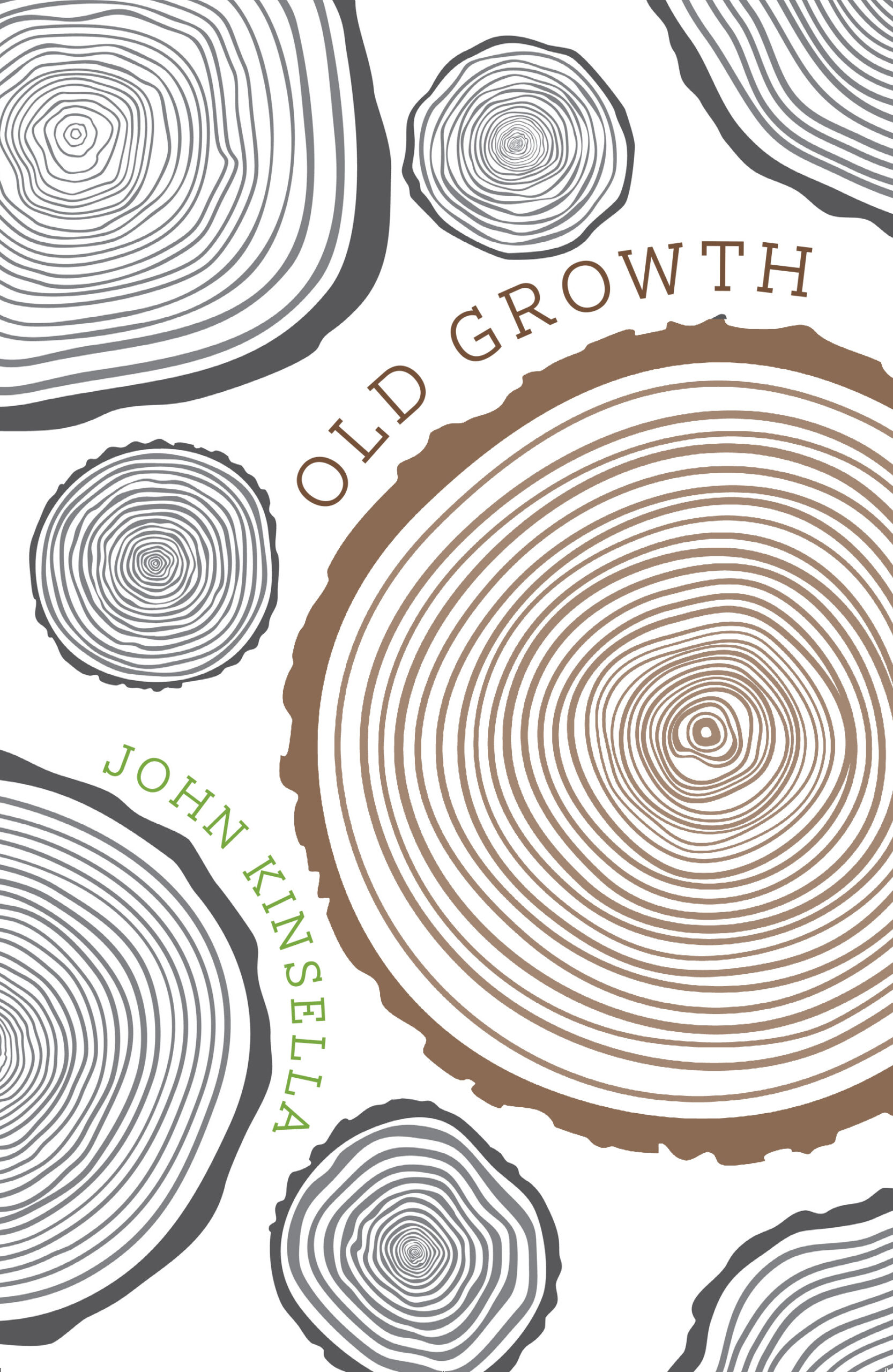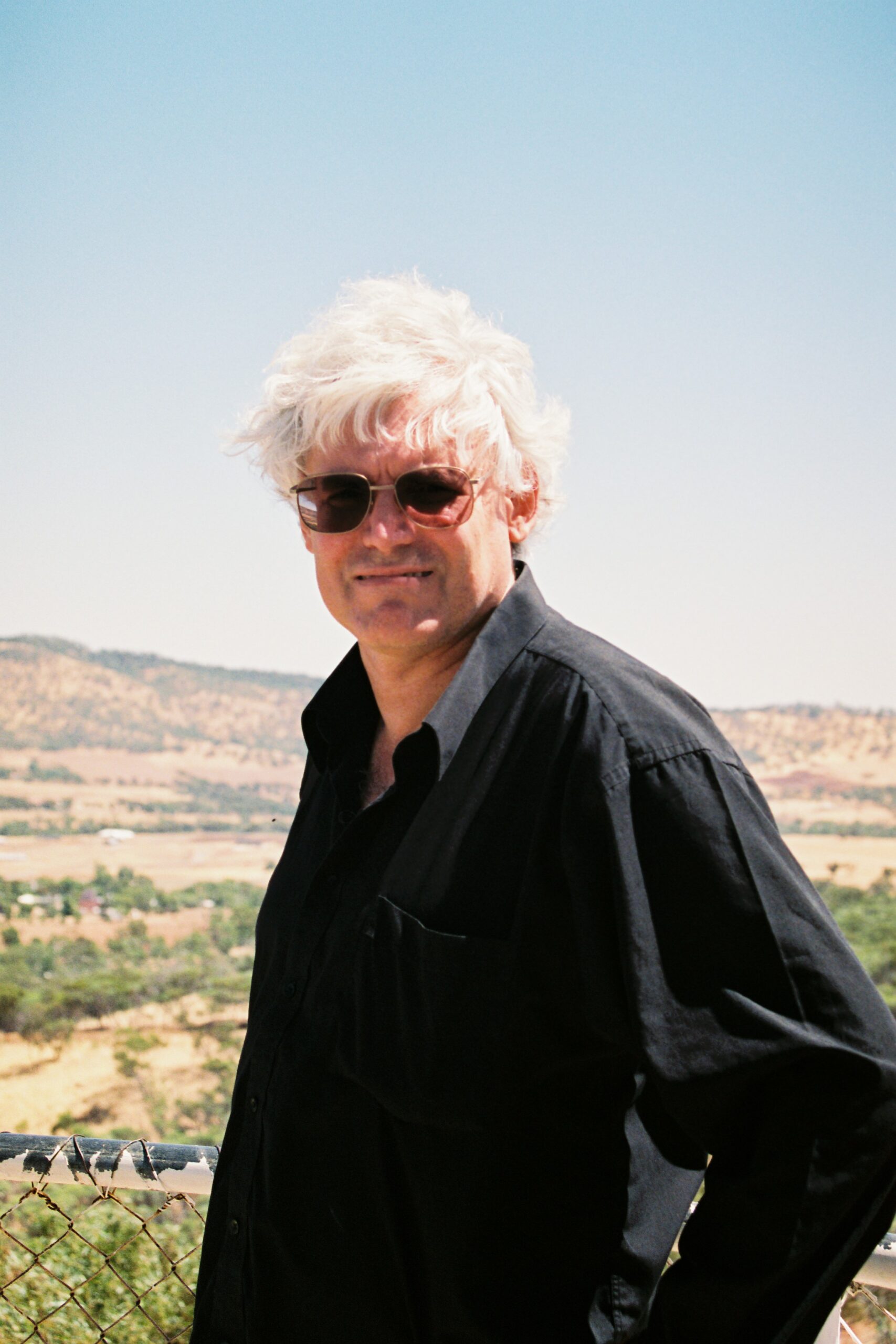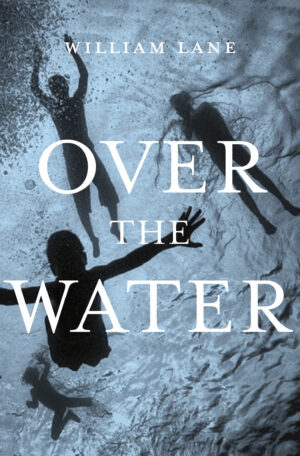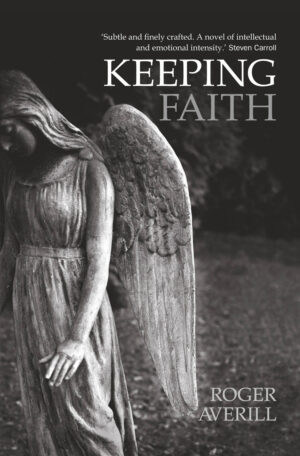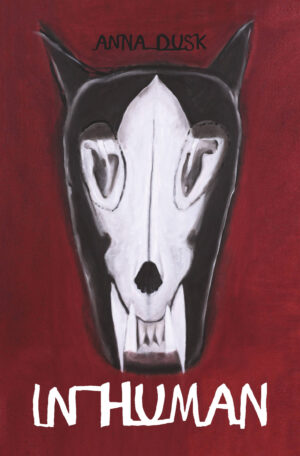With a cover that shows a cross-section of tree trunks, the geometric cover design of John Kinsella’s short-story collection Old Growth is simple but mesmerising, like a pop art illusion. The rings denote arboreal age but also suggest layers of meaning. With a body of work that includes poetry, novels, essays, plays and memoir, Western Australia-based Kinsella is comfortable with wearing multiple hats.
The 27 stories in Old Growth are set mainly in and around the WA wheatbelt and outer Perth suburbia. The micro-fictions here take place in hotels, farmsteads, pubs, shopping centre carparks and threadbare homes, with a focus on fraying blue-collar workers.
There is nothing showy about Kinsella’s language. It’s restrained and in service to the narrative, though the ocker opening of Building the Brick Barbecue is also humorous: “Why don’t ya get off your arse and do something, for once, ya bludger!” Key elements of this sad tale of unemployment, alcohol abuse and familial strain permeate the book.
Many stories are from the point of view of boys approaching or just entering puberty. Kinsella is adept at inhabiting the stifling world of adolescents who are precocious but lonely and alone. Gangly or stumpy, not yet grown into their own skins, they are caught in the awkward stage between childhood and adulthood.
In Bulge, there’s a scrawny, picked-on child guzzling protein shakes to improve his physique and, he hopes, ward off unkind attention. The man-child in The Boy Who Read Marvel to His Sheep sighs about oscillating between two equally unsatisfying places, “It was uncomfortable growing — he still wanted to be a small child, though he also wanted the world at his fingertips.”
Kinsella’s boys are non-sporty but not necessarily academic swots. Their interests tend to be obsessive: there’s the fastidious “protege of the philately world” who collects rare stamps and treats his peers with disdain; and the young engineering enthusiast whose cobbled-up invention inadvertently reveals a secret.
In this world of men-to-be, adults are unfathomable, temperamental and often intimidating. The grown men here aren’t exactly role models. They are absentee fathers; and when they are around there is booze and drugs and indifference to their offspring.
The women, drawn with sympathy, are often shrunken under duress. They are bracing against unwanted attention or violence, or just stoically surviving, like the obsessive-compulsive in the opening story: “Going out to the engine shed late at night to shut down was the highlight of her life. She knew this. She was no victim of her own condition who couldn’t recognise its pathos, its overwhelming absurdity. But it was so, nonetheless.”
Pieces of broken family units are scattered throughout the book: two brothers go on a long bus ride to visit their estranged father (Fried Breakfast on the Road); another pair of brothers follows a paper trail of deception (Pack of Cards) and two women fall out after a junkie ne’er-do-well stumbles into their lives (Sisters). Shorn of sentimentality, the prose is rich with dialogue and emotion.
A number of the stories are set on rural properties, where the landscape, livestock and farm machinery are integrated into the fabric of the narrative, often acting as agents of change. There is often one moment when the taut string of tolerance or resignation snaps, and lives are upended. Kinsella is not immune to harnessing the shock factor. One can imagine the authorial thrill that comes with jolting readers out of gentle uneventfulness into the unexpected or brutal.
In The Hannaford Grader Man, for instance, there’s a bloke whose life seems palely insignificant but who, like his small band of epistolatory friends, reveals dark impulses in his letters. The prodigious digger in Tunnelling: A Backyard Story responds with ferocity when his hidey-hole is threatened. The titular story tracks unforeseen ramifications when a widower decides to burn off the undergrowth in his property.
In fact, reading this anthology straight through can be unsettling. Danger beckons
and the threats are not always clearly signposted: asbestos, depression, fatal accidents, bushfires, domestic assault, bondage, drunken bravura. Hope can be found among the ashes but it takes a fair bit of raking to find it. There are occasions when New Growth seems a more accurate title.
Thuy On, The Australian 11 February 2017
One of Australia’s leading poets, as well as professor of sustainability and literature at Curtin University, John Kinsella has stated that the “purpose” of his poetry is “to draw attention to the damage being done and to show that we are all implicated”. It’s pretty clear that he has hewn from the same brief in writing the stories that make up this collection.
The damage being done here is chiefly that of humiliation. Old Growth is replete with bullies and misfits: blokes with short fuses, schoolyard and domestic cruelties, vandals of the heart.
In the title story, a farmer seeks to assuage a grudge he can’t articulate by torching a pocket of wandoo bushland that his dead wife had loved. “Always on about the bloody bush bush bush,” she’d seen something in it that had eluded and excluded him.
The title character of “The Hannaford Grader Man” grades the grain, season after season, in the country north of Northam and, in the pub, nurses a lemonade and a secret no one could guess at. The protagonist of “An Introduction” craves admittance to the arcane brotherhood of stamp-dealers: “Philately is about calm, calm, calm…”
And “The Boy Who Read Marvell to the Sheep” is nourished on art, poetry and classical music by a mother who accuses him, at 12, of being “too precocious for your own good”.
Like their writer, these stories are grounded in the West: wheatbelt towns, farms and bush blocks, dying pubs, the Pioneer bus to Karratha, the city as outlier. Kinsella writes as one deeply familiar, if hardly at ease, with his stories’ milieu.
His publishers call Old Growth “luminous”, which led me to expect radiance, where what’s on offer is clear, unstrained prose and stories that are tart, shading to bitter. Passages that might strike a reader as brazenly poetic are reserved for the natural world (“The jewel beetle rainbowed in the sun”, “the magnificent wandoos that held the sunset cold and warm at once in their powdery barks”), seeming to illuminate Kinsella’s affinities.
Old Growth presents a scheme of things in which nature stands blameless, while humans are corrupt, vicious or just plain weak.
FL, Saturday Paper 11 February 2017
Interview by Angus Dalton for Good Reading Magazine
https://goodreadingmagazine.wordpress.com/2017/02/20/i-am-irrelevant-john-kinsella-on-old-growth/
Of the seven posts published in January 2017 by John Kinsella and his wife Tracy Ryan on their blog Mutually Said: Poets Vegan Anarchist Pacifist, three are protesting the extension of Roe 8 and the clearing of Coolbellup-Beeliar wetlands for the Perth Freight Link; two are protesting the felling of old-growth trees along the York-Merredin, or York-Quairading road; and one is about the intersectional environmentalism that informs this protest.
The posts are political, much like Kinsella’s fiction, but categorically of a different kind. They often obey a pattern of prose preface followed by poetic expression, and feature more particular criticisms than his fiction. This relationship between art and politics, particularly given the particular political persuasion, immediately invokes Percy Bysshe Shelley who propelled similar anarchist and vegan ideas in detailed notes after the poem ‘Queen Mab’ and before the poem ‘The Revolt of Islam’.
In one post Kinsella writes referring to state and federal Coalition governments that:
The right-wing governments of Australia have been making a concerted effort to delete ecologies as fast as they can … it is now reaching critical level. (Destruction of Old-Growth Trees on the York-Quairading Road, 2017)
This is the privilege of reading Kinsella from Perth. His interaction with our political landscape—pertinently given the upcoming March 11 Western Australian state election and the partisan battlelines over the Perth Freight Link—allows for a contextual understanding of his work and its dominating ideological framework. For instance, we see his aversion to aggression and systemic violence at a local level in his 2016 post and poem ‘In Marapikurrinya: for Ms Dhu’, commiserating the death of a woman in custody. This understanding projects across other works and offers insight into Kinsella’s representations of humanity and morality in fiction.
Kinsella’s latest book of short stories, Old Growth, is eponymous for its sixteenth story in which a man burns down a forest with the passing of his wife. This story demonstrates Kinsella’s brilliant control over narrative direction. Perhaps to be expected from a poet, Old Growth’s propensity to create tone and maintain atmosphere is extraordinary. This is noticeable in ‘The Introduction’, which features the consistency in tone and characterisation necessary to entertain a story about a boy, philately, and a Northbridge stamp dealer. Many of the stories throughout the anthology share themes, although each is written uniquely and holds its own in retrospection.
Occasionally, as in ‘The Boy who Read Marvel to the Sheep’, the plot seems to act independently of characters and with a dependency on chance. The stories, however, are self-aware of this: “The inquest showed it to be an accident, which it was” (133). The twists rarely make the earlier parts of the story superfluous, but do necessitate their reevaluation. Kinsella’s adept grasp over the characters and tone always leave keen sensitivities, when as in ‘The Hannaford Grader Man’, the moral motive of the story changes in a single clause. It is without a doubt the way that Kinsella uses chance to express behavioural fortitudes; threat and retreat; aggression and primitivism; resilience and anticipation; that turns the reliance on chance from simply a crutch for the plot, to a raw presentation of human response.
The strongest element of Kinsella’s work is the invocation of place and its demands on the performance of human behaviour. Kinsella uses place in stories such as ‘The Last Days of the Railroad Hotel’ and ‘The Shopping Trolley’ to challenge and naturalise the character of Australian culture. Through ‘The Shopping Trolley’, core Australian beliefs in multiculturalism, inclusion, and larrikinism coalesce in an act of outreach and a stand of solidarity against racism. Kinsella shows rough-and-tumble Australian youths supporting a young Muslim girl who had been verbally attacked as a “freeloader and a darkie and a terrorist” (54), and then shows the interaction between Muslim iconography and daily Australian life as the girl “[removes] her hijab and [wraps] it around Monica’s wounded head” (59).
Kinsella also dissects the conventional masculinity of mateship, and the aggression it feeds on. Inside the vivid scenes of Australian life in ‘Licence’, the final story, Kinsella requalifies Australian values: “Nothing wrong with being a poof, mate!” (254). His characters are manifestations of contradictions, inset to the Australian landscape. One gathers from ‘Licence’ that the arid Australian landscape demands a certain grit, but needn’t come with the homophobic and racist tropes texts often associate it with.
The Australian narrative of asbestos and the wider identities of asbestosis are explored in the story ‘See that Gully’. Epigraphed by the second line of Percy Bysshe Shelley’s poem, ‘To a Skylark’—‘Bird thou never wert’ (14)—Kinsella sculpts an effigy of outer-suburban Australia that is aesthetically inviting, but also vividly painful. Kinsella forces a simpatico relationship with the protagonist, Ghost—named so because of his inability to separate himself from the death-riddled legacy of asbestos and mesothelioma, “It’s all fibres dispersing, spreading, working their way in.” (15)—evoking empathy with intense paranoia. He summons an Australian childhood intertwined with the fibres, and an adulthood that cannot sever itself from them.
As an anarchist and environmentalist, Kinsella affirms that the asbestos-driven quality of life degradation is firmly on his side of the court. It is the legacy of ineffable suffering in unscrutinised markets, and a fair target. His blog activity indicates the certainty of his cross-hair:
And remember that smug capitalist
eating asbestos on his breakfast cereal?
(Asbestos at Coolbellup Bush Site, 2017)
This specific vignette makes another appearance in ‘See that Gully’ with a reference to “that mining entrepreneur who served himself asbestos on his Weeties to show how harmless it is” (23) (his italics). It is revealed that Ghost had a relative die of asbestosis and that he cannot imagine himself as free from the material, that his life and identity is inseparable from its legacy. Kinsella’s indictment of consumerist structures is transparent when Ghost shares that his neighbour “profited from [his] misery, from putting fibres in the air” (19). Kinsella is effective here by following Nabakov’s advice to “ignore allegories” (Strong Opinions, 1973). Asbestos avoids becoming only a symbol or analogy for oppressive capitalism, but is a rather textbook instance of it.
George Orwell wrote in his 1946 essay ‘Why I Write’ that “Every line of serious work that [he had] written since 1936 [had] been written, directly or indirectly, against totalitarianism and for democratic socialism”. Likewise, Kinsella imbues his stories with political motive—against the conservative trends in society, against all forms of aggression, and for anarchism—and they cannot be read without that acknowledgement. Old Growth is foremost a dedication to acute emotion, at once an augury and ode to personal complexities. Kinsella invokes place and the role it has on individual and collective identities, and explores the ways in which chance affects behaviour. It is above all a book of interesting short fiction, written as only Kinsella could write.
Luke Thomas, Westerly https://westerlymag.com.au/old-growth-john-kinsella-review/?platform=hootsuite

